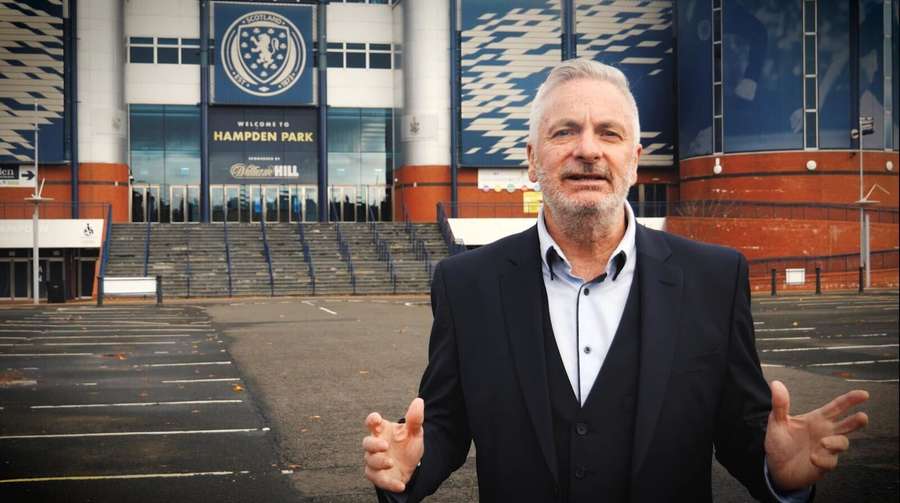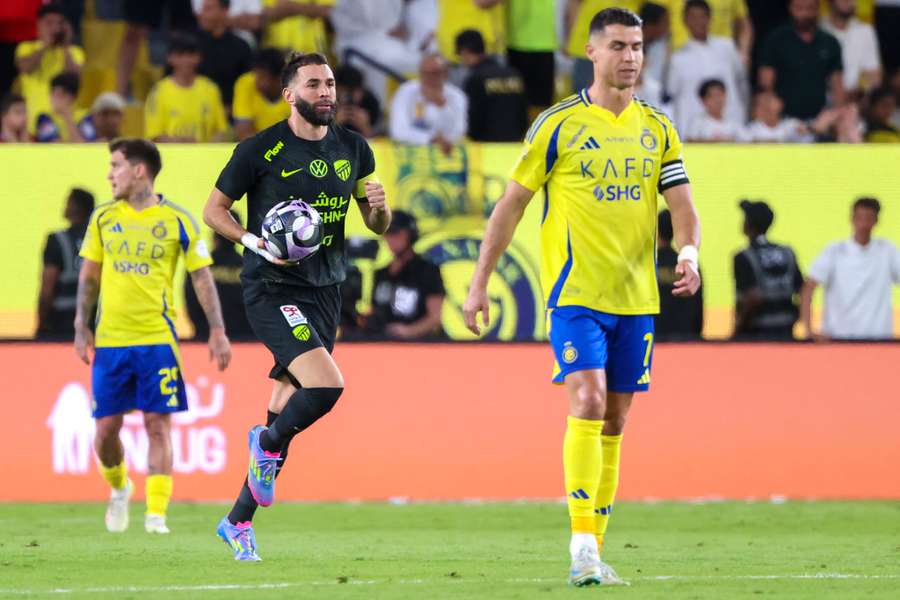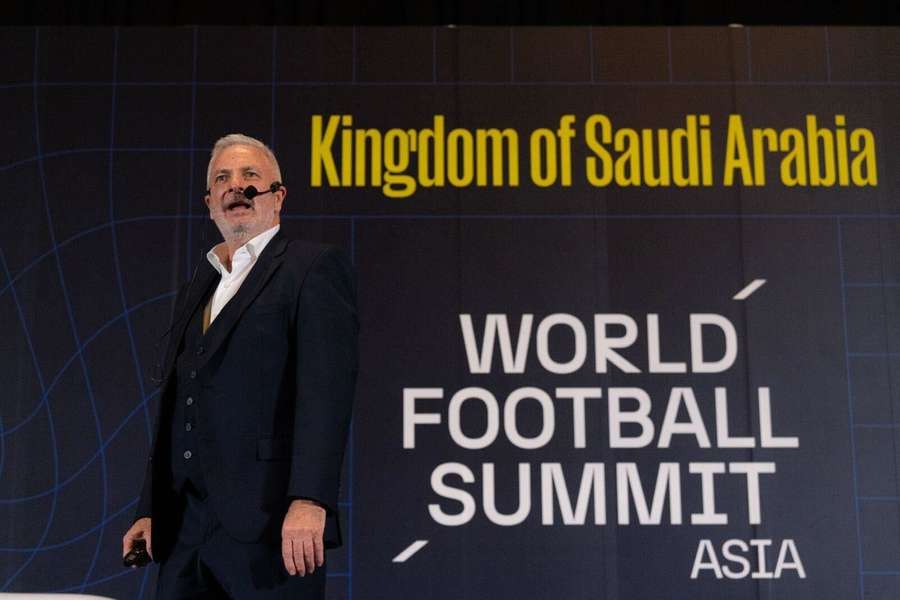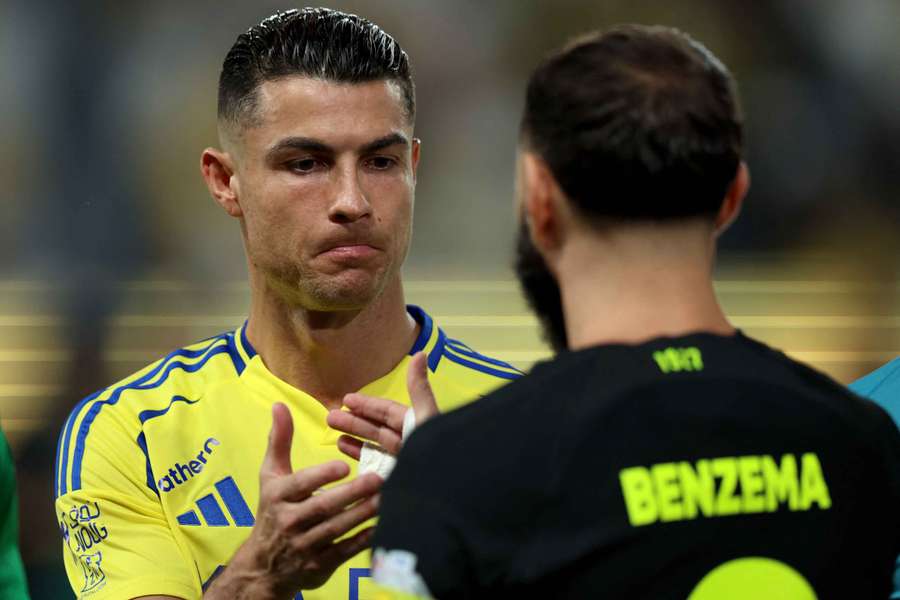Alongside his 451 Football Consultancy, John has established the JV Academy, which aims to help the next generation of football agents flourish in an ever-increasingly competitive industry.
Part of that remit is focusing on emerging markets, something John has seen plenty of, and there are none more emerging than the oil-rich Gulf state of Saudi Arabia, a region that has evolved from a financial disruptor to having their sights set on being a fully-fledged competitor.
Since Cristiano Ronaldo's move to Al Nassr in December 2022, a wave of football's elite have headed to the Middle East, ranging from veterans like CR7, Karim Benzema and N'Golo Kante to those still perceived to be in their primes, like Ruben Neves and Ivan Toney, all of whom are on eye-wateringly massive wages that many of Europe's biggest clubs are unable to contend with.
Read more: John Viola wants to shape the next generation of football agents
While it's nothing new (the USA and China both have a history of employing the same growth tactic), it raises a significant question: Is the monetary allure that's drawing these stars out of the more traditionally respected, competitive leagues a negative for the world's most popular sport?

"They've been talking about that bubble for years, and now everybody's waiting for that bubble to burst," John, a proud Glaswegian, tells Flashscore.
"I think it's a positive, because if all of a sudden, your team receives £25 million for a player that was maybe only worth five. Your team is all of a sudden sitting with good money to maybe develop younger players.
"It's not going to change the Premier League if a few of them are leaving, and I believe other countries should be able to develop, why not?
"If they've got the money, why shouldn't Saudi Arabia be able to develop? It's not all about France, Germany, Spain, England and the Italian leagues of this world. Why shouldn't other countries try to get in that top five? Why not?"
'Footballers are entertainers'
But what sort of precedent is it setting when an exciting player in the prime of their career is choosing a bigger money deal in Saudi Arabia over moving to somewhere like Manchester City, Liverpool or Real Madrid, where competing for Europe's top trophies and a proper legacy are a given?
"Footballers are just people, and they have only got a short span, so you can never criticise a player for moving for money in my opinion, because he's got to get as much money during that short period," John says.
"He doesn't know what will happen after that, and many of them lack the necessary skills for what comes next.
"They've got to rely on and get the maximum amount during the period.
"I also will say - and you might not hear this from many agents - I don't think any player is worth £200,000 a week. But do you think Rod Stewart is worth £200,000 for a gig? Nobody complains about that.
"These guys are entertainers, and there's a demand for them. There's a demand for 60,000 people to watch a game at Tottenham. There's a demand for 63,000 at Parkhead in Glasgow. And the demand for people to want to see what they're doing and talk about their lives.
"They have become the movie stars and the top singers in the world. So, is any player worth £200,000 or £500,000 a week? I don't believe so for what they're doing. But that's the business they're in, and nobody's going to say no to that."
Sportswashing or sustainable growth?
Saudi Arabia has denied that its growing presence in global sport is a form of 'sportswashing' - a term used to describe the practice of using sport to improve a country or organisation's international image and divert attention from criticism or negative publicity.
Officials insist that their investment is part of a broader effort to modernise the country and reduce its economic dependence on oil by developing sectors such as sport and entertainment.

However, this strategy has drawn significant controversy. Critics argue that the kingdom is using sport to distract from its human rights record, including restrictions on freedom of expression, the persecution of dissidents, and the limited rights of women and minority groups.
Political issues such as the murder of journalist Jamal Khashoggi, involvement in the war in Yemen, and the use of the death penalty have further fuelled accusations of image management through sport.
Despite these concerns, Saudi Arabia continues to play an increasingly prominent role in the sporting world. The country hosted FIFA's 2023 Club World Cup, has a major sponsorship deal between its state-owned oil company, Aramco, and FIFA, and is set to stage the 2034 World Cup.
Can the state genuinely overcome these widespread concerns and become a competitive football league?
"I'm going to put my neck on the line and say yes, I think they can get there," John replies.

"China threw a lot of money at football a number of years ago, but they didn't really spend as much on infrastructure. If you look at Saudi Arabia, you'll see what they're spending on infrastructure. They're building cities.
"They're spending trillions on grassroots football. They're bringing in top coaches, top nutritionists, top doctors, and paying them. They're starting from the base up, but of course, you're only seeing the big names.
'They'll be up there'
"I was on a government committee last year, and I learned so much about what Saudi Arabia was doing.
"It was all about setting up academies all over Saudi Arabia, including what they were spending on each one, what they were building, and who they were bringing in. And I thought, based on that alone, in a few years' time, these guys are going to make it.
"But if you look behind the curtain, you see there were another 92 players that were signed at different levels, and a lot of younger ones.
"For instance, I'm currently looking for six players for a Saudi team, and they don't want anyone over 28. They're also trying to develop younger players to sell them, as many clubs are now becoming businesses, whereas previously they were backed by the government.
"I did my first deal down there 20 years ago - I took two international Venezuelan players, could you imagine that? A guy from Glasgow taking two Venezuelan players to Saudi Arabia, it doesn't match up. It's like the start of a joke.
"I look at that and I look at it now, and obviously it's just completely different.
"In years to come, they'll be up there somewhere near the top five leagues in the world."
Click the links to learn more about the JV Academy and 451 Football Consultancy.
